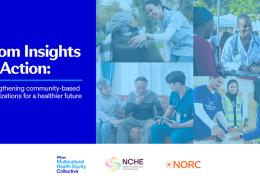Are Health Apps Beneficial to Your Health?

This article originally published on GetHealthyStayHealthy.com
We live in a digital world and health apps are certainly a part of it. Approximately 3.4 billion people use smartphones and tablets worldwide. According to mobile industry estimates, half of them have downloaded a health app. The question is, are health apps beneficial to our health?
Can health apps really help?
There are over 300,000 mobile health apps available, but it’s important to know that the vast majority of them are not reviewed or regulated by the US Food and Drug Administration (FDA). The FDA does not review or monitor health apps unless they are connected to or intended to be used as a medical device. An app that is intended for maintaining or encouraging a healthy lifestyle, (and unrelated to the diagnosis, cure, prevention or treatment of a disease or condition), is not considered a medical device. And, some contend more studies are needed to determine whether health and wellness apps actually help to improve health.
The FDA believes, however, that mobile apps may be beneficial in helping people to improve healthy behaviors, motivating positive changes to boost well-being, and accessing useful health-related information more readily.
What kinds of health apps are available?
There are many different types of health apps available. These include apps related to:
- Nutrition. Many apps provide an estimated count of your calories so you know how much you’re eating.
- Sleep. There are apps that can track and record information such as about how much and how well you slept.
- Fitness. Various apps can help you track about how many steps you take, and/or how far you run or bicycle.
- Stress. These include apps to help calm the mind, improve awareness, and/or meditation exercises.
- Medication reminders. These can help remind you to take your medications at the right time.
- Quitting smoking. These apps aim to help smokers quit based on their smoking patterns, triggers, and moods.
- Living with cancer. These are apps that are designed to help people living with cancer by organizing their questions for their healthcare providers, providing information about a diagnosis, and helping to manage their daily needs.
Health apps aren’t meant to take the place of your healthcare provider
While health apps may help you keep track of your health and health-related activities, they are not meant to take the place of your healthcare provider. It’s important to keep up with your in-person healthcare visits. During those visits, share the information from any health apps you use. This can help your healthcare provider work with you to manage your overall health.
How can I find a health app that is right for me?
If you’re thinking about using (or already using) a health app, ask your healthcare provider if he or she has any recommendations.
Other things to consider include:
- Thinking about your health goals and then learning if there is an app that can help you reach them.
- Reading app-store and online reviews to see what users are saying.
- Avoiding health apps that overpromise. If an app sounds too good to be true, it may be.
- Reading the fine print. Understand how your personal data will be shared. Make sure the app will not sell or share your personal information without your permission.
- Learning as much as you can about an app’s developers. You can usually find the developer’s name in the app store or on the app’s website. Try to find out if they’ve developed other health apps and if an app is endorsed by a health organization or hospital.
- Looking for apps that are self-monitoring, allow for goal setting, that send reminders, and that offer social support.
Talk with your healthcare provider if you have any questions about a health app or need more information.
___
- U.S. Food and Drug Administration. Mobile Medical Applications. Accessed January 23, 2019.
- Research to Guidance (R2G). mHealth App Economics 2017/2018: Current Status and Future Trends in Mobile Health. Accessed January 29, 2019.
- Burke LE, Ma J, Azar KM, et al. Current science on consumer use of mobile health for cardiovascular disease prevention: A scientific statement from the American Heart Association. Circulation. 2015;132(12):1157-1213.
- U.S. Department of Health and Human Services. Classification of Products as Drugs and Devices & Additional Product Classification Issues: Guidance for Industry and FDA Staff. Final Guidance. Accessed February 18, 2019.
- Office of the National Coordinator for Health Information Technology. How Can Digital Tools Help Me Manage My Health Information? Accessed January 23, 2019.
- Byambasuren O, Sanders S, Beller E, Glasziou P. Prescribable mHealth apps identified from an overview of systematic reviews. npj Digit Med. 2018;1-12.
- Harvard Health Publishing. Better Health With Smartphone Apps. Accessed January 28, 2019.
- Choi YK, Demiris G, Lin S-Y, et al. Smartphone applications to support sleep self-management: review and evaluation. J Clin Sleep Med. 2018;14(10):1783-1790.
- Anxiety and Depression Association of America (ADAA). ADAA Reviewed Mental Health Apps. Accessed February 4, 2019.
- Smokefree.gov. Smokefree Apps. Accessed February 4, 2019.
- CancerCare.org: Mobile Applications (Apps) and Cancer. Accessed February 4, 2019.
- Cordeiro B, Nathan-Garner L. How to Choose a Good Health App. Accessed January 23, 2019.
![]()





